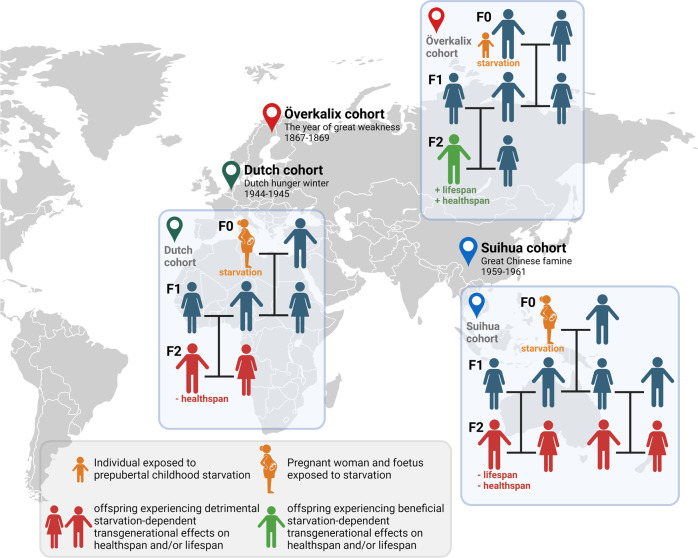Fig. 1. Historical and demographical human cohorts illustrate the impact of famine on human health and longevity, including transgenerational effects up to 2 generations.
The Swedish Överkalix cohort (famine 1867–1869), based on individuals exposed to food deprivation during their prepubertal period (5–12 years of age) showed beneficial transgenerational effects in term of health span and lifespan in the grandsons of exposed grandfathers. The Dutch cohort (famine 1944–1945), and the Chinese Suihua cohort (famine 1959–1961) based on individuals, whose pregnant mothers and themselves in utero as foetuses were exposed to nutrients deprivation showed detrimental transgenerational effects in term of health span in the offspring of prenatally exposed fathers (but not mothers) for the Dutch cohort and in term of decreased health and lifespan in the offspring of parents exposed in utero to famine for the Chinese cohort. The image was created with BioRender.com.

